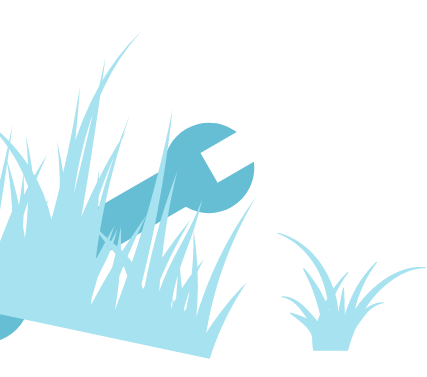Welcome to Ready & Able, formerly known as David LeRoy Plumbing! Although our name and brand have changed, we are still here to serve you and all of your plumbing, heating, cooling, and air quality needs!


When it comes to caring for your home, there’s a lot to think about. You have to keep your drains and pipes clear of blockages, and clean the leaves out of the gutters. You have to keep the lawn mowed, the chimney and the basement clean. With so much to think about, it can be hard to keep track of everything.
One thing many homeowners forget about, or don’t know much about, is their water quality. Everyone tries to take cares of their pipes, and everyone knows to have their septic system cleaned periodically. But how much do you know about your water itself?
Water quality is an important component of your home. Water that’s been treated improperly — or not at all — or water that has the incorrect chemical balance could be disastrous for your health. That’s why it’s important to know what’s going on in your water pipes. It’s important to check your water quality and invest in a home water treatment system if necessary.
At Ready & Able Inc., we want to empower homeowners with the knowledge they need to care for their water. To that end, we’ve put together a guide that includes everything you need to know about what water quality is, how you check your water’s quality and how to correct any problems that you might find.
We’ve all heard about water quality, but many of us don’t have a good idea of what it means. Why does water have a quality, anyway?
Water quality simply refers to how pure or clean water is. The cleaner the water is, the higher quality we say it is. Unfortunately, the reality is that there’s no such thing as pure water in any natural state. Water naturally picks up all kinds of impurities, gases, dust and other particle matter as it falls from the sky in the form of rain and makes its way into our sinks and bathtubs.
The water most people in the U.S. use is filtered through a water treatment plant. These facilities work to remove impurities from water, or to render these pollutants impotent. This treatment helps keep all of us healthy by preventing us from drinking potentially harmful substances.
However, not every home has water that comes from a water treatment facility. Many homes, especially in rural areas, drink water that comes from wells in their own yards and fields. In cases like these, it’s important for homeowners to be aware of the potentially harmful substances they could be ingesting along with their water. They should know how to test their water to ensure it is up to a drinkable standard.
Whether or not you need to get your home’s water tested depends on where your water is coming from. Most U.S. citizens get their water from a water company that draws water from nearby lakes, rivers, streams and groundwater. The company filters out any harmful particles and pollutants and pipes the clean water directly into your home. In cases like these, the water company is responsible for the cleanliness of the water, and they are required to meet government-mandated safety levels. You should receive a regular report from your water company on the safety and cleanliness of your water.
However, approximately 15 percent of Americans live in rural areas, and may not have access to these water treatment plants. Without access to municipal water, these individuals get their water from a well. These wells are either privately owned and located on the homeowner’s property, or are shared by multiple homes on a rural road.
If you live in a rural area and get your water directly from a well, there is no treatment plant responsible for the cleanliness of your water. The National Ground Water Association recommends well owners test their water at least once a year.
The easiest and simplest way to ensure your drinking water is up to standards is to get it tested at a laboratory accredited by the Department of Environmental Protection (DEP). You can collect a sample of your water and send it to one of these private laboratories. Depending on what type of testing you would like done, these laboratories will analyze your water for a fee and report their findings back to you. Remember to take samples according to the directions provided by the laboratory.
You can find a list of DEP-accredited labs on the DEP’s website, or by browsing your local telephone directory.
The findings of this water quality testing will be different for everyone. Your water quality will be unique to your home and location. A few of the elements and pollutants that commonly show up during these tests include:
Once you’ve had your water tested, you know what you’re working with. You know if your water tends to have one certain chemical mixed into it. You know if it’s prone to one form of pollution or another. These pollutants may be immediately dangerous to your health, or have long-term consequences that increase your risk for certain health conditions. Sometimes, they may not pose a health risk at all, but just create an unpleasant taste in your drinking water.
However, once you know what’s in your water, you can begin to correct it. There are many steps you can take to keep your home or well water safe and clean, and you don’t have to break the bank to do it.
Everybody wants to have plumbing that works smoothly. But did you know maintaining your plumbing can be a crucial step in maintaining the cleanliness of your water? To understand how best to care for your plumbing system, it’s best first to know what kind of pipes you have.
One of the main things many people may be worried about is lead in their drinking water. If that’s your fear, you can rest easy, knowing lead is an uncommon material in modern residential plumbing.
There are exceptions to this, of course. If your home is 30 years old or older, has metal plumbing and hasn’t been upgraded since it was built, the solder in your pipes probably contains lead. The only solution is a complete overhaul and re-do of your house’s plumbing system. As much as this may sound like an enormous headache, it’s worth it to avoid the health risks of drinking contaminated water. Even if you aren’t worried about the possibility of lead, an annual plumbing inspection is a smart preventive measure.
Another good way to ensure the health of your water is to treat it well in your own home. You might not realize it, but even small actions like showering, running a load of laundry or washing your hands can have a big impact on your water. By taking a few simple precautions, you can help keep your water clean and safe for everyone.
This isn’t always a necessity. If your water comes from a well and your annual tests consistently come back clean, there usually isn’t a need for an extra filtration system. Your water should be safe without this additional level of cleaning.
If, however, your tests are not clean, or if your drinking water begins to develop a strange taste or smell, it might be time to invest in a filtration system to clean your water before you drink it. But what do home water filters do?
When it comes to water filtration or purification systems, there are two main types of systems you can choose between: point-of-use filters and whole-house filters. These two types of home water filters work slightly differently. As you might guess, point-of-use options filter the water directly before you use it, on a use-by-use basis. Whole-house options, on the other hand, consistently filter all the water in the house, whether you are ready to use it or not.
Some examples of point-of-use filters include:
Most of the time, these types of filters are quick and easy to install. In some cases, such as a filtration pitcher, it doesn’t even need to be installed.
Some types of whole-house filters you might consider include:
As their names indicate, these systems are all intended to filter different elements from your water. In general, how a home water filter works is based on two methods. They’re either activated carbon filters — which focus on removing elements such as copper, mercury, chlorine, dirt and sediment — or reverse-osmosis filters, which are intended to remove lead, chlorine and fluoride, as well as other elements.
When you decide which type of filter is best for your house and your individual system, it will be helpful to first know what you want to filter out of your water. Consult your most recent home water quality checklist to help you gain more information in this area.
Another term that gets thrown around a lot is “hard water,” which you can correct with a water softener. But what exactly is hard water, and why is it undesirable?
Hardness is a term used to refer to the level of calcium and magnesium present in water. When water is hard, the levels of these elements are extremely high. Hard water can lead to white deposits in boilers, pipes and shower heads. It can also mean you need to use more laundry detergent to get clothes clean and fresh. While not an extremely serious problem, hard water is bad for your pipes, fixtures and appliances.
Fortunately, there’s an easy fix. If your home has hard water, your best solution is to install a water softener. This filter works by adding extra sodium to your water, which counteracts the hardness and balances out your water again. By extension, then, water that is high in sodium is generally referred to as “soft water,” or is hard water that has been treated with sodium.
If you’ve determined your home could benefit from a water cleaning system, contact us at Ready & Able We are a reliable team of local experts who offer high-quality water treatment and filtration systems to help keep your drinking water safe and clean. We use state-of-the-art tools and technologies so you can be sure your home is in the best hands possible when you call us.
When we work in your home, we never want you to feel confused or overwhelmed by what’s going on, or by what we’re doing. That’s why our team of friendly professionals is always willing to talk you through the process, explaining in detail what we’re doing, why it’s the best course of action and how it will benefit you, your house and your water quality.
Call our office today at 717-963-2034 and talk with our plumbing manager to get started on your water filtration systems.
Welcome to Ready & Able, formerly known as David LeRoy Plumbing! Although our name and brand have changed, we are still here to serve you and all of your plumbing, heating, cooling, and air quality needs!